6 Most Common Car Accident Injuries

The number of injuries that can result from a car accident can be vast and depend on many factors, including the way the car was hit, the position in which you were hit, if the driver or passengers were wearing a seatbelt, and the speed at which the accident happened. Even minor accidents can result in injuries that can affect the accident victim for years if not acknowledged and treated promptly. After every car accident, it is in your best interest to visit a clinic and ensure you have not suffered any silent injuries. Here at 1-800-411-PAIN, we care about your well being and can guide you to find the best healthcare professionals after your car accident. It is important that you learn about some of the most common car accident injuries to recognize them and get the treatment you deserve after an accident. Here are some:
- Whiplash: This is one of the most common car accident injuries. Whiplash is a neck injury due to forceful, rapid back-and-forth movement of the neck, like the cracking of a whip. This injury often occurs after a rear-end car accident and can be more severe or mild, depending on the hit’s force. Some people who suffer from whiplash don’t feel it until days after the accident as they lose range of motion and experience pain when they try to make regular neck movements. Whiplash affects the muscles and tendons in the neck and makes it difficult to move. After a car accident, starting medical treatment can make the difference between a few weeks of pain and chronic neck problems.
- Concussion: Concussions can happen after a car accident from a shaking motion similar to whiplash or if the head hits something in the car at full force. Some of the most common signs of a concussion include headache, ringing in the ears, nausea, vomiting, fatigue or drowsiness, and blurry vision. Some people might also experience minor amnesia and a sense of fogginess and confusion. However, people most can overcome a concussion and regain their health. If not treated soon after an accident, it can create long-lasting complications, such as post-traumatic headaches or post-traumatic vertigo.
- Bone fractures: these types of injuries often happen due to blunt force or compression during an accident. The areas of the body that are often affected by bone fractures are the extremities, including arms, legs, hands and feet, because of their position while a person is driving. The face can also get hit harshly and fractured. Depending on the severity of the fracture, immediate care, and even surgery may be needed.
- Herniated Discs: A herniated disk refers to a problem with one of the rubbery cushions (disks) that sit between the individual bones (vertebrae) that stack to make your spine. Many people suffer from herniated discs and have no symptoms, but the pressure it causes could be damaging a nerve and can end up being very painful. Most herniated disc injuries occur in the lower back region, and affect the neck, especially after car accidents. The complications of these types of injury can also result in surgery or long term treatment.
- Internal Bleeding: It is crucial to seek medical care after an accident because of injuries like internal bleeding, which can be silent but very dangerous. Often, this occurs after significant blunt force, but it might also happen after a less severe accident. Some of the common symptoms experienced soon after the injury happens are abdominal pain (if the bleeding is in that area), light-headedness or dizziness, bruising and swelling, headache, seizures, or loss of conscience. It is highly essential to be seen by a medical professional to discard the possibility of internal bleeding.
- Psychological Trauma: Physical injuries are not the only ones left after a car accident. Many people experience feelings of guilt, confusion, and emotional pain. After treating your physical injuries, check on your mental wellbeing as well. For some people who experience loss during an accident, long term support may be required. Sometimes this trauma can manifest in flashbacks, depression, anxiety, among others.
When you get into an accident, it is crucial to consider both your physical and mental health. Getting checked for injuries, even if your accident was mild, can mean the difference between health and long term injury. After 911, Call Path at 1-800-411-PAIN. We will make sure you get the best medical care and legal advice to focus on getting your health back.


